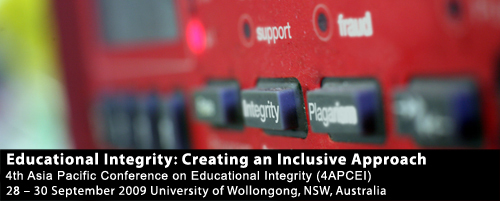Location
41.107
Start Date
30-9-2009 12:30 PM
End Date
30-9-2009 12:00 AM
Description
This paper is a modification of and some additions to an oral paper given in 2008 to philosophers and psychologists most of whose current thinking is along the lines of a post-modern, instrumentalist approach to knowledge and higher education. The paper’s (long) title shamelessly plagiarizes from the title of the book by the much more eminent Donald Horne. The approach I advocate, and look back to (perhaps with glasses that are somewhat rose tinted) is one that characterized O’Neil’s department. The approach was pre-modernist in a number of differentiating respects that included complete academic freedom, education rather than indoctrination, and fairness in the evaluation only of academic performance rather than of personal beliefs and attitudes. These conditions, rather than those of such features as “inclusiveness”, I argue, are necessary for integrity in higher education. These are also the conditions which are largely satisfied in competitive elitist sports and games, especially in Australia.
Reminiscences of the University of Sydney psychology department’s discipline-focused education of young John (1958-65) under O’Neil’s god professorial reign (1945-65): Academic freedom, fairness in evaluation, and educational integrity
41.107
This paper is a modification of and some additions to an oral paper given in 2008 to philosophers and psychologists most of whose current thinking is along the lines of a post-modern, instrumentalist approach to knowledge and higher education. The paper’s (long) title shamelessly plagiarizes from the title of the book by the much more eminent Donald Horne. The approach I advocate, and look back to (perhaps with glasses that are somewhat rose tinted) is one that characterized O’Neil’s department. The approach was pre-modernist in a number of differentiating respects that included complete academic freedom, education rather than indoctrination, and fairness in the evaluation only of academic performance rather than of personal beliefs and attitudes. These conditions, rather than those of such features as “inclusiveness”, I argue, are necessary for integrity in higher education. These are also the conditions which are largely satisfied in competitive elitist sports and games, especially in Australia.


